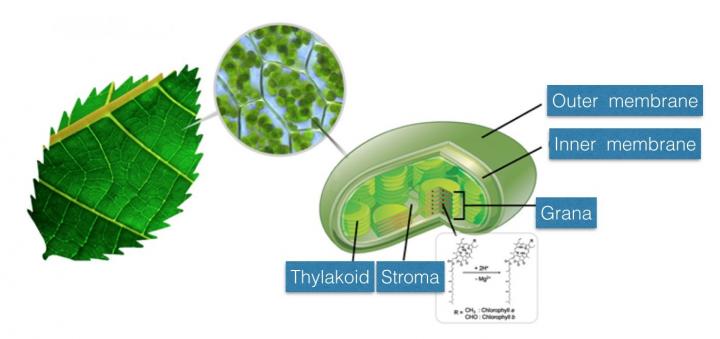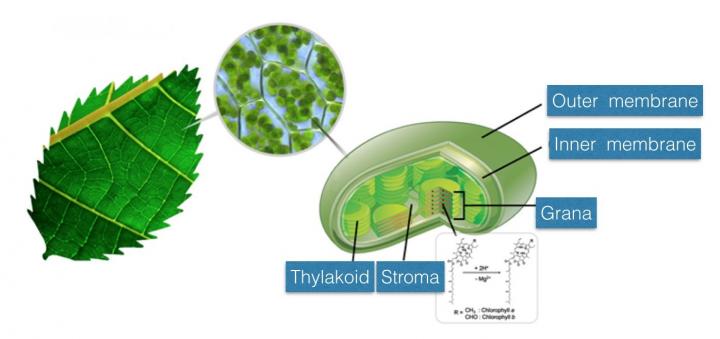
Credit: DGIST
DGIST announced that the research team of the fellow Hong-Gil Nam and the research team of Professor Richard N. Zere of Stanford University have found in their joint research that chlorophyll demetallation is naturally accelerated a thousand times faster in microdroplets without any help of enzymes.
Chlorophyll is a green pigment molecule found in photosynthetic organisms and plays a key role in the first step of photosynthesis, which absorbs light and converts it into chemical energy.
In recent years, several research groups have reported the phenomenon of accelerated chlorophyll reactions in microdroplets. Mostly, evaporation of the solvent or low voltage was pointed as the main causes of the acceleration. However, this study conducted experiments to verify various hypotheses without accepting existing assertions and found that the limitation effect of physical space of micro-sized droplets is the cause of accelerated reaction.
The team paid attention to the chemical reaction of chlorophyll in order to reveal the control secret of the absorption and transfer of solar energy. In the acidic condition, chlorophyll demetallation reaction occurs in which the magnesium ions at the center of the chlorophyll are replaced with the hydrogen ions. So far, the importance of this reaction in photosynthesis has been overlooked as the reaction rate of the demetallation in bulk solution was very slow compared to the absorption and transfer rate of solar energy in many experiments.
The research team has found that the chlorophyll demetallation reaction gets a thousand times faster in microdroplets by applying the method to measure the reaction rate of biochemicals in microdroplets which was developed in 2015. This suggests the possibility of a new mechanism of photosynthesis control by rediscovering the importance of chlorophyll reaction.
In living organisms, a variety of biochemical reactions take place in physically confined spaces. Photosynthesis also occurs in the organelles, the chloroplasts of plants, and the smaller structures called 'grana' in chloroplasts absorb light. The team observed the reaction kinetics of biochemical reactions by creating microdroplets to look at the reaction of chlorophyll under the similar environment to the actual physical space of a plant.
The research team collided water droplets containing chlorophyll with water droplets containing hydrochloric acid at high speed to make micro-sized fused droplets. Then, they recorded kinetics of acid-induced chlorophyll demetallation by controlling the travelling distance of the fused microdroplets.
As a result, it was found that chlorophyll demetallation occurs at a time of several tens of microseconds, which is about a thousand times faster than that measured in bulk solution. This result is presumed to be due to the limitation of the physical space of microdroplets as well as the surface effect of droplets themselves.
Hong-Gil Nam said "When chlorophyll is oxidized, it loses its photosynthesis function. However, the demetallation reaction can protect the chlorophyll as it prevents the oxidation of chlorophyll." He added "This study suggests that the demetallation reaction of chlorophyll can be a new mechanism which can protect photosynthetic organisms or control photosynthetic efficiency and that the reaction can be fast enough without any enzymatic action unlike conventional thinking."
The team expects that the discovery of a new mechanism of photosynthesis would bring better understanding of the operation of photosynthesis and contribute to further studies to find elements and methods for more efficient photosynthesis.
###
Media Contact
Dahye Kim
[email protected]
82-537-851-163
http://www.dgist.ac.kr
############
Story Source: Materials provided by Scienmag





